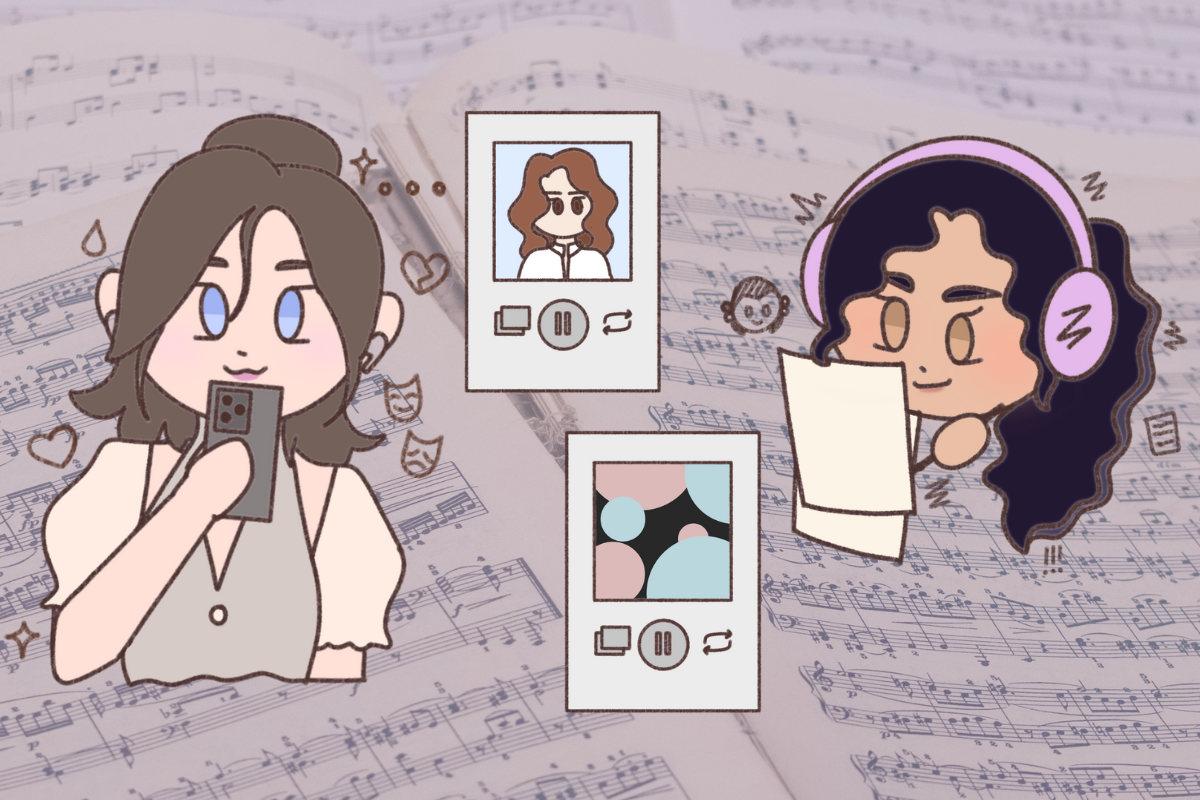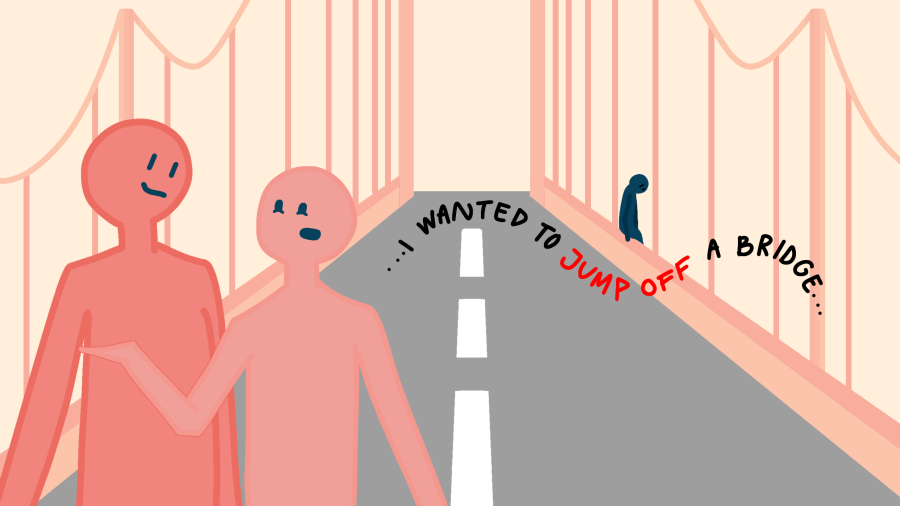It’s Not Just a Joke: Why We Should Stop Saying “I Want to KMS”
Disregarding the words and phrases you say can lead to unwanted consequences.
June 2, 2023
“I’m so OCD.”
“This gives me PTSD.”
“That test was so hard, I want to-”
Phrases like these are easy to hear in the cacophony of noise at Edison High. Whether it be heard from classmates, friends, or even teachers at times, it’s easy to think that telling a friend to die as a way to mess around isnormal. After all, no harm, no foul? Isn’t it just a joke?
Quite frankly, there is a foul. Actually, a lot of them.
According to the National Institute of Mental Health, or the NIMH, 4.1 million adolescents aging from twelve to seventeen have experienced major depressive episodes in 2020 alone, which is 17% of the teenage population in America. In 2004, 31.9% teenagers aged thirteen to eighteen had a type of anxiety disorder, and the percentage has only increased.
But so what? Many claim the phrases are simply a joke, but the usage of these real disorders are generally harmful.
A reason for this behavior could be the lack of education behind serious mental health issues. Mental health disorders such as OCD, bipolar disorder, and ADHD have been diluted to mean organized, capricious, and distracted. Obviously, these disorders aren’t just simple, one-word characteristics. They influence not just actions, but thoughts, physical health, and quality of life. Regularly belittling these words to one-word definitions makes it more common to fall into the habit of using these words as vague descriptors rather than diagnosed disorders.
Trivializing these conditions make people experiencing them feel invalidated, as mentioning a disorder such as ADHD would be instead seen as an excuse for not doing their work rather than a valid reason. The legitimacy of the disorder is disregarded. Power is taken away from these diagnoses, and now it’s difficult to take a necessary discussion of mental health seriously.
The stigmatization of mental health disorders is also a result of oversimplifying these terms. For example, an individual with ADHD can’t not have problems focusing, much less successfully finish a project, because having ADHD means that you simply can’t focus (note sarcasm in italics). However, ADHD has two aspects to it: a lack of focus, yes, but also hyperactivity. That’s what the acronym ADHD stands for, after all: attention-deficit hyperactivity disorder. Someone may have one or both of these symptoms, or other symptoms not mentioned, and it’s thus important to remember that everyone has different experiences. In other words, there is no “one size fits all” definition to a mental health disorder.
Additionally, bringing up sensitive topics like self harm can easily prompt someone to hurt themselves. Accidentally telling someone suicidal to “unalive” themselves, as one would censor online, may very well be the push that brings them to do it. There’s a difference between being ‘oversensitive,’ as some people claim to defend their use of the words, and being triggered.
So, what can you say instead? Here are some of the common disorders mentioned and alternatives you can say.
- “My OCD is urging me to fix this.” “I’m so OCD about organizing.” OCD, or obsessive-compulsive disorder, is a disorder that involves excessive and intrusive fears (obsessions) that result in compulsive behaviors. This may include, yes, cleaning and organizing, but includes many other aspects that are not appropriate to reference when speaking about cleaning your room. Instead, you can say, “This bothers me,” or “I really have to organize this mess.”
- “You are so bipolar.” “I’m feeling really bipolar today.” Bipolar disorder involves episodes of mood swings, noted as being manic, hypomanic, and depressive. This, however, does not simplify to having a fluctuating mood, as they are much more extreme. Other phrases you can say include “I’m feeling moody today.”
- “That made me want to commit suicide.” “Oh, go kill yourself.” Jokes about suicide are never appropriate. Reaching an inconvenience does not excuse casual mentions of ending your life. In addition, we want to avoid the word “commit” in the phrase “commit suicide,” as the word implies that suicide is a crime to commit. Rather than using these phrases, you can say, “That made me really stressed,” or “Oh, stop.”
- “It was my intrusive thoughts!” “The intrusive thoughts made me do it.” There’s a difference between intrusive thoughts and impulsive thoughts. Both are thoughts that spontaneously pop up into one’s mind. The important difference is that intrusive thoughts are upsetting and recurring, while impulsive thoughts are more passive. You can mention impulsive thoughts rather than intrusive thoughts, or avoid the phrase altogether and simply say, “It wasn’t very well thought-out.”
- “I can’t focus! It’s like I have ADHD.” As mentioned in the paragraphs above, ADHD is not only being unfocused, but having inattentiveness so severe that it conflicts with your life. Avoiding the phrase “It’s like I have ADHD” is the best way to stop using the term. Mention that you’re being easily distracted, or simply can’t focus.
- “That test gave me PTSD.” PTSD, or post-traumatic stress disorder, is a much more complex disorder than simple flashbacks. PTSD includes feelings of excessive anxiety with triggers that cause mental and physical reactions. You can avoid saying this by using words such as “That test reminded me of my bad grade on a similar test last year.”
- “This project is giving me depression.” Depression, as commonly mentioned as it is, is not simply being sad. The disorder is characterized through a struggle to function within daily life due to the rising or lowering of a person’s mood. You can easily replace the word “depression” with the word “sad” or other such synonyms.
- “I literally had a panic/anxiety attack.” Panic and anxiety attacks are serious episodes of both physical and mental anguish; sufferers often indicate they feel they are being choked. Exaggerating your worry in an exaggerated way is harmful to the discussion of panic and anxiety attacks, and prevents people from being taken seriously about them. You can say that you felt nervous, or that your heart was rapidly beating in your chest.
- “I’m so DID. It’s like I have multiple personalities.” Changing your behavior around others does not mean you have multiple personalities. DID, or dissociative identity disorder, is one often developed through trauma experiences for a person to protect themselves from further harm. Instead of saying you have DID like symptoms, you can instead say that your etiquette changes around certain people.
It may seem as if changing a couple words wouldn’t make much of an impact; however, changing these stereotypes will have impactful results. Online, it’s easy to get caught in the flow of common slang, and fleeting mentions of mental health disorders are not difficult to find, to the extent that it’s “normal.” It’s easy to hide behind a screen and not face the consequences of your words.
Many people on social media discuss the desire to raise awareness and acceptance of mental disorders, and avoiding using the names of known disorders is one step towards this goal. Changing the small details of your conversation can influence others to do the same.
Regardless of today’s easy access to the Internet, some people simply don’t care about the influence their dialogue holds, despite knowing the effects of their words. After all, most mention that it is just a joke.
…Right?
























































































